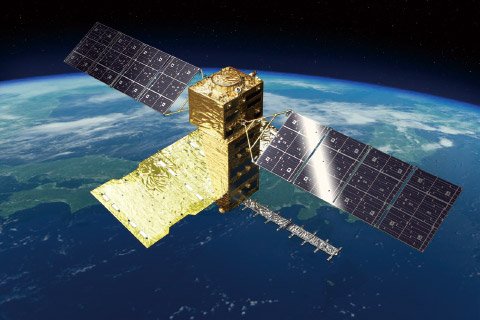Successful Launch of ALOS-4 Satellite
Japan has made a significant advancement in space technology with the successful launch of the advanced Earth observation satellite, ALOS-4. Using the new H3 rocket, this achievement marks a crucial step forward in Japan’s capabilities for disaster response, security, and international competitiveness.
JAXA, Japan’s space agency, recently celebrated the launch of the upgraded Earth observation satellite, ALOS-4, utilizing the cutting-edge H3 rocket. This milestone represents a major progression in Japan’s space program and highlights the country’s dedication to improving its disaster response and security measures.
Purpose of the ALOS-4 Satellite

The primary mission of the ALOS-4 satellite is Earth observation and data collection. Equipped with advanced sensors, ALOS-4 can provide critical information for disaster response, such as monitoring natural disasters and aiding in mapmaking. This capability is essential for timely and effective disaster management.
Source: JAXA- Japan Aerospace Exploration Agency
Monitoring Military Activity
In addition to its Earth observation capabilities, ALOS-4 is equipped with an infrared sensor developed by the Defense Ministry. This sensor enables the satellite to monitor military activities, including missile launches. This dual-use functionality enhances Japan’s national security by providing real-time data on potential threats.
Praise from JAXA President Hiroshi Yamakawa

JAXA President Hiroshi Yamakawa lauded the launch of ALOS-4 as a significant step forward for Japan’s space program. He emphasized the importance of this achievement in improving Japan’s access to space and boosting its international competitiveness. The successful deployment of ALOS-4 is seen as a testament to Japan’s growing expertise in space technology.
Source: JAXA- Japan Aerospace Exploration Agency
Successor to ALOS-2
The ALOS-4 satellite is the successor to the current ALOS-2 satellite. It boasts enhanced capabilities, including the ability to observe a wider area. This improvement is expected to provide more comprehensive data for disaster response and security monitoring, making ALOS-4 a vital asset in Japan’s satellite fleet.
Importance of Space Transport Capability
Japan views the development of a stable and commercially competitive space transport capability as a cornerstone of its space program and national security strategy. The successful launch of ALOS-4 Satellite using the new H3 rocket represents a significant step in achieving this goal. A robust space transport system is essential for maintaining and expanding Japan’s presence in space.
Development of the H3 Launch System
Mitsubishi Heavy Industries is spearheading the development of the H3 launch system, which is set to replace the current H-2A rocket. The H3 launch system is designed to be more cost-effective and reliable, ensuring that Japan remains at the forefront of space technology. The successful launch of ALOS-4 using the H3 rocket demonstrates the system’s potential and reliability.
The successful launch of the ALOS-4 satellite marks a triumphant milestone for Japan’s burgeoning space program, underscoring the nation’s relentless pursuit of technological advancement and innovation. ALOS-4, with its cutting-edge Earth observation capabilities, is set to revolutionize how Japan responds to natural disasters. By providing real-time, high-resolution images, the satellite will enable rapid and accurate assessments of affected areas, facilitating quicker response times and more efficient resource allocation during crises.
Furthermore, ALOS-4’s advanced security monitoring features, including its state-of-the-art infrared sensor developed by the Defense Ministry, position it as a critical asset in Japan’s national security infrastructure. The satellite’s ability to monitor military activities, such as missile launches, provides Japan with an enhanced situational awareness and a strategic advantage in maintaining national security.
This achievement is not just a testament to Japan’s technical prowess but also a significant boost to its international competitiveness in the space industry. The successful deployment of ALOS-4 using the new H3 rocket highlights Japan’s growing capabilities in space transport and its commitment to developing a stable, commercially viable space launch system. The H3 rocket, developed by Mitsubishi Heavy Industries, is designed to be more cost-effective and reliable than its predecessors, ensuring Japan’s competitiveness in the global space market.
As Japan continues to innovate and expand its space capabilities, the launch of ALOS-4 stands as a testament to the nation’s dedication to progress and security. This milestone reflects Japan’s strategic vision of becoming a leader in space technology, capable of not only enhancing national security and disaster response but also contributing significantly to international scientific research and commercial space endeavors.
The ALOS-4 satellite launch represents a pivotal moment for Japan, heralding a new era of advanced Earth observation and security capabilities. This success reinforces Japan’s position as a formidable player in the global space industry and demonstrates the country’s unwavering commitment to leveraging space technology for national and international benefit. As Japan’s space program continues to soar to new heights, the world will undoubtedly witness the far-reaching impacts of its innovative contributions to space exploration and security.
